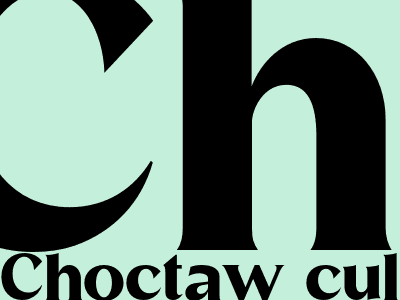
Choctaw Culture: A History of Perseverance
Preserving a Rich Heritage
The Choctaw Nation, a federally recognized Native American tribe, has a rich and enduring culture that has been passed down through generations. Despite facing numerous challenges and setbacks throughout history, the Choctaw people have persevered and maintained their cultural identity.The Choctaw tribe originated in the southeastern United States, with their traditional territory spanning present-day Mississippi, Alabama, and Louisiana. They were known for their advanced agricultural practices and complex social structure.
Forced Removal and Resilience
In the early 19th century, the United States government forced the Choctaw to relocate from their ancestral lands to present-day Oklahoma under the Indian Removal Act of 1830. This forced displacement, known as the Trail of Tears, was a traumatic event that resulted in the deaths of thousands of Choctaw people.Despite the adversity they faced, the Choctaw adapted to their new environment and rebuilt their communities in Oklahoma. They established a constitutional government, developed their economy, and preserved their cultural traditions.
Language and Education
The Choctaw language, an important part of their cultural identity, has been preserved and revitalized in recent years. The tribe operates schools and language programs to ensure that future generations can speak and understand their native tongue.Education has also been a priority for the Choctaw Nation. They have established colleges and universities to provide educational opportunities for their people and others.
Economic Development
In the 20th and 21st centuries, the Choctaw Nation has focused on economic development to improve the lives of its members. They have established businesses, invested in infrastructure, and promoted tourism to create jobs and generate revenue.The Choctaw Nation's economic success has allowed them to fund important programs and services for their people, such as healthcare, education, and housing.
Cultural Preservation and Revitalization
The Choctaw Nation is actively involved in preserving and revitalizing its cultural heritage. They operate museums, cultural centers, and art galleries to showcase their history, traditions, and artwork.The tribe also hosts annual festivals and events to celebrate their culture and share it with others. These events feature traditional dances, music, food, and storytelling.
Contemporary Challenges and Opportunities
The Choctaw Nation continues to face challenges, including environmental issues, economic inequality, and the loss of cultural knowledge. However, the tribe is committed to addressing these challenges and building a brighter future for its people.The Choctaw Nation is also actively involved in advocating for Native American rights and sovereignty at the local, state, and federal levels.
Conclusion
The Choctaw Nation is a testament to the resilience and perseverance of the Native American people. Despite facing numerous challenges throughout history, they have maintained their cultural identity and thrived in their new environment.The Choctaw Nation continues to be a vibrant and dynamic community that is committed to preserving its heritage and building a brighter future for its people.